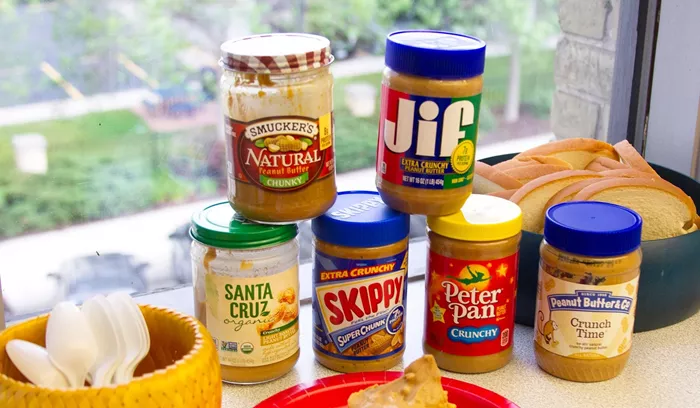A new study suggests that children with mild peanut allergies may be able to eat peanut butter safely by gradually consuming increasing amounts of it over time.
The study, published on Monday in NEJM Evidence, involved 32 children who participated in a trial of immunotherapy using store-bought peanut butter. After 18 months of treatment, all participants could consume the equivalent of three tablespoons of peanut butter without any allergic reactions.
However, researchers emphasized that this treatment should only be carried out under the supervision of an allergist.
Peanut allergies affect about 1% to 2% of children and adults in the U.S., according to the American Academy of Allergy, Asthma, and Immunology.
Previously, studies have focused on children with severe peanut allergies, where even a tiny amount of peanut could trigger a life-threatening reaction. Dr. Scott Sicherer, the study’s lead author and a professor at Mount Sinai in New York City, explained that the goal was to help children who can tolerate small amounts of peanut and eventually enable them to view peanuts as a regular food. He expressed surprise at the success of the treatment.
Sicherer cautioned parents not to attempt this treatment on their own and to consult with an allergist.
The trial initially involved 73 children, aged 4 to 14, and was funded by the National Institute of Allergy and Infectious Diseases. Of these, 38 were randomly assigned to receive the immunotherapy, while the remaining 35 continued avoiding peanuts. Only children who could eat at least half a peanut without reacting were included in the study. Those who could consume more than 20 peanuts were excluded.
After 18 months, six children in the treatment group and five in the control group dropped out, leaving 32 in the immunotherapy group and 30 in the control group. Children in the treatment group started with a tiny amount of peanut butter, just one-eighth of a teaspoon, and gradually increased the dosage every eight weeks. After reaching half a teaspoon, they were allowed to substitute other foods with equivalent peanut protein, such as candies, for the peanut butter.
This gradual increase in peanut protein was carefully monitored by allergists to ensure safety. When children reached a tablespoon of peanut butter a day, they were advised to consume two tablespoons of peanut butter each week instead of daily.
None of the children in the treatment group had a severe allergic reaction at home that required an epinephrine shot. Only one child needed epinephrine during a study visit.
The next phase of the study tested whether the children’s new tolerance would last. After eight weeks of avoiding peanuts, 26 out of 30 children who continued with the study could still safely consume the equivalent of three tablespoons of peanut butter. The researchers concluded that immunotherapy had successfully helped these children overcome their peanut allergy.
“This treatment is simple and effective,” Sicherer said. “It has the potential to change the lives of children and families living with peanut allergies.”
Dr. Joel Brooks, an expert in allergy and immunology at Columbia University, also praised the findings. He called the ability to induce tolerance to peanuts “incredibly exciting” and noted that children who undergo this therapy may no longer need to carry an EpiPen or avoid foods containing peanuts.
Peanut allergies often limit children’s participation in social events like birthday parties or eating out with family. Brooks highlighted the positive impact the treatment could have on families, as it would eliminate the constant worry about allergic reactions.
Brooks also welcomed the publication of the immunotherapy protocol, which could be used in medical practices across the country. However, he stressed that parents should not attempt this therapy independently, as food challenges can sometimes lead to severe, life-threatening reactions.
Read more:
- Is Chocolate Good For Your Heart? Experts Weigh In
- Measles Outbreak Hits West Texas County With High Vaccine Exemption Rate
- FDA Warns Of Botulism Threat As Canned Tuna Recalled From Major Retailers


